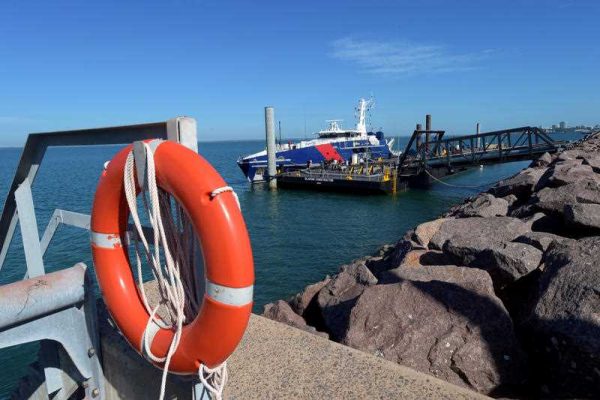So far the changes have been measured. The Treasurer has made the sale of state government-owned critical infrastructure assets to privately owned foreign companies subject to review by the Treasury’s Foreign Investment Review Board (FIRB). David Irvine, former Director-General of the Australian Security Intelligence Organisation (ASIO) and a former ambassador to China, was also appointed to FIRB to boost its capacity to provide national security advice to the Treasurer.
But Australia’s defence hawks want more. In an ongoing Senate inquiry into the foreign investment regime, the Australian Strategic Policy Institute recommended that FIRB should be separated from the Treasury and report through the Treasurer to the National Security Committee of Cabinet. Currently, FIRB advises the Treasurer, who then determines whether any particular investments are contrary to the ‘national interest’.
The cause célèbre of these hawks is a decision last October by the Northern Territory government to lease Darwin Port to Shandong Landbridge Group, a private Chinese company. What made the deal so controversial was that Darwin plays host to rotations of US marines and is identified by the Australian government as part of the US rebalance to the Asia-Pacific region.
Leaked polling from the US State Department also claimed that 89 per cent of Australians saw at least ‘some risk’ to national security from a Chinese company managing Darwin Port.
But leaders in Australia’s security agencies have rejected the idea that Chinese investment in Darwin Port compromises national security. Dennis Richardson, Secretary of the Department of Defence, said:
‘We [the Department of Defence] and ASIO have looked very carefully at it from the point of view of espionage and issues of a security nature. We are at one in agreeing that this was not an investment that should be opposed on defence or security grounds.’
This assessment was supported by the Chief of the Australian Defence Force, Mark Binskin, who remarked that intelligence could be more easily gathered on the Darwin Port by ‘sitting on a stool at the fish and chip shop on the wharf’. Secretary Richardson was asked at the recent Senate inquiry to respond to the suggestion that the Darwin Port deal was part of China’s greater strategic ambitions. He replied that such a claim was ‘alarmist nonsense’.
On the ties between the privately owned Chinese company Landbridge and the Chinese state, the Director General of ASIO, Duncan Lewis, told the same Senate inquiry that a Chinese commercial entity having connections with the Chinese government was ‘hardly remarkable’. The same would be true, he added, of many Australian companies.
Of course, Darwin Port is just one instance of Chinese investment in Australian infrastructure. Australia’s security agencies may take a different view of risks associated with investment in other assets. But the fact remains that it is the Darwin Port deal that hawks have used to justify their claims that tighter scrutiny of Chinese investment is needed, while the consensus between Australia’s security agencies, which presumably have access to the best available information, is that such claims lack merit.
A new survey of 1000 Australians also casts doubt on the extent to which Chinese investment in ports is viewed with particular suspicion by the general public.
An analysis of the survey responses found that the most important determinant of public preferences towards foreign investment in ports was the share of foreign ownership that would result. Australians preferred a lower share to a higher one. Next was the length of the lease that a foreign investor would acquire. Shorter leases were preferred to longer ones. These are general issues around foreign ownership and control, not concerns about which country the investment is from.
On investment country-of-origin, of five countries considered — China, India, Japan, the United Arab Emirates and the United States — the United States was the most-favoured investor while China was the least-favoured. But there was no statistical basis to conclude that the public preferred investment from India any more than investment from China. This undermines suggestions that the Australian public regard Chinese investment as posing a specific risk.
The results of a model of preferences based on the survey responses also imply that, if all other attributes were kept equal, the public would actually prefer a Chinese investment with an ownership share of 64 per cent to an American investment that led to 100 per cent foreign ownership. This indicates that the Australian public have only modest concerns about Chinese investment specifically, vis-à-vis foreign investment generally.
If the Australian public were alarmed that Chinese investment might be a means to promote the strategic ambitions of the Chinese state, then one would also expect to see a particular aversion to investment from China’s state-owned companies. Yet, all other attributes being the same, the public actually preferred investment from state-owned companies. The specific interaction between the investment attribute of country-of-origin (China) and ownership type (state-owned or privately owned) was also statistically insignificant.
In short, the research suggests that the Australian public were indeed unlikely to have been supportive of the Darwin Port deal. But this is mainly because the sale resulted in 80 per cent foreign ownership and exists for a period of 99 years, not because the buyer is from China.
For foreign companies, from China or elsewhere, wanting to minimise political risk when buying into Australian infrastructure assets, the lesson is clear: partner with a local investor and be sure they hold a decent ownership stake.
James Laurenceson is Deputy Director of the Australia–China Relations Institute (ACRI), University of Technology Sydney.
Hannah Bretherton is a researcher at ACRI.


From the assessments by Australia’s top security and defence agency heads of the survey, it is clear that the view of those so called security hacks from the Australian Strategic Policy Institute is possibly out of self interest.